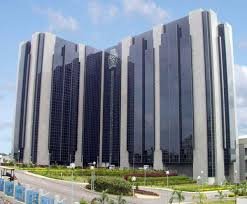The Nigerian Economic Summit Group (NESG) has asked the federal government to create effective tax systems and harmonise forex rates to curb the emerging economic crisis.
NESG said this in a communiqué on Sunday titled: “Of Hope and Despair…Not Too Late to Turn the Curve”.
In the communiqué, signed by Asue Ighodalo, chairman of NESG, the group urged the government to take major steps to sustain the economy and avert more burdens for future governments.
The group added that despite declining revenues, increasing debt, oil theft, high cost of production and an intense business environment, the government can still make out policies to curve the situation despite its short time in office.
“Today, the country is stuck in an economic morass. Most macroeconomic indicators are spiralling out of control, inflicting severe hardship on more Nigerians. Even though the economy continued to recover in the first half of the year, economic growth was dominated by sectors with low contributions to output and weak job-creating capacity while the oil sector remained in recession for eight consecutive quarters,” the communiqué reads.
It added that “the current state of insecurity is indicative of a nation under siege” despite increased budgetary allocation to defence and national security.
“Nigerians now live in a permanent state of fear as bandits are able to hijack a train and kidnap dozens of passengers, overrun prisons and release hundreds of convicted criminals, and hold hundreds of kidnap victims for months at a time,” NESG said.
“Yet, despite some changes to the leadership of the national security apparatus, conditions have not improved. There is hardly any need to itemise the adverse impact of insecurity on food prices, productivity, ease cost of doing business, investor confidence and national pride.”
The group, however, called for a new social contract between the government and the people to “reduce the growing trust deficit” and highlighted recommendations to adopt.
“Multiple foreign exchange (FX) markets with significant price differentials create room for speculation, round-tripping, cronyism, and outright graft – with an attendant adverse effect on the economy. There is no better time to harmonise the FX rates than now,” the group added.
“The ongoing face-off between the Federal Government and the Academic Staff Union of Universities (ASUU), which has resulted in the closure of universities for about six months, has become a national embarrassment. The NESG is willing to support the government’s efforts toward developing sustainable governance and funding strategies for tertiary education.
“The federal government is urged to devise a pragmatic national security strategy that unconditionally guarantees the safety of lives and properties within the country.
“Also, urgent action is required to ensure food self-sufficiency by prioritising critical value chains and supporting private sector-led interventions to curtail this crisis and build a vibrant and sustainable food ecosystem in Nigeria based on consistent incentives and sanctions.”
NESG, however, commended the government’s effort to commence the implementation of the Medium-Term National Development Plan (2021 – 2025) and the passing into law the 2022 Electoral Act.
In its January to April 2022 fiscal outcomes, the federal government said the cost of debt servicing surpassed retained revenue as total public debt continues to rise.
Also, the Central Bank of Nigeria’s Ways and Means financing to the federal government peaked at N19.6 trillion as of May 2022, and the country maintains an unsustainable fuel subsidy regime.






















